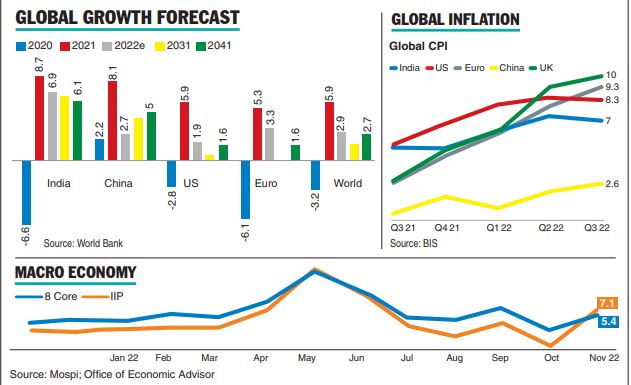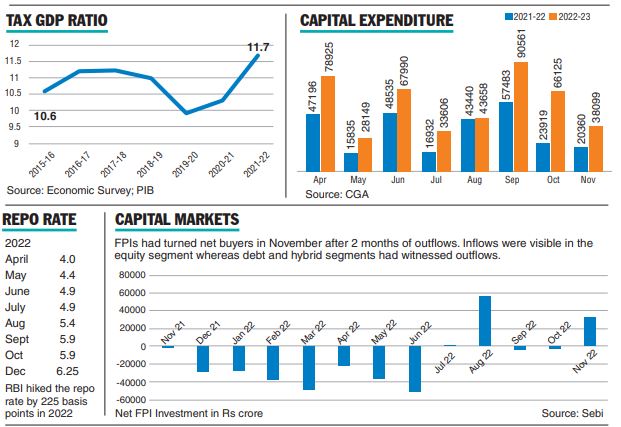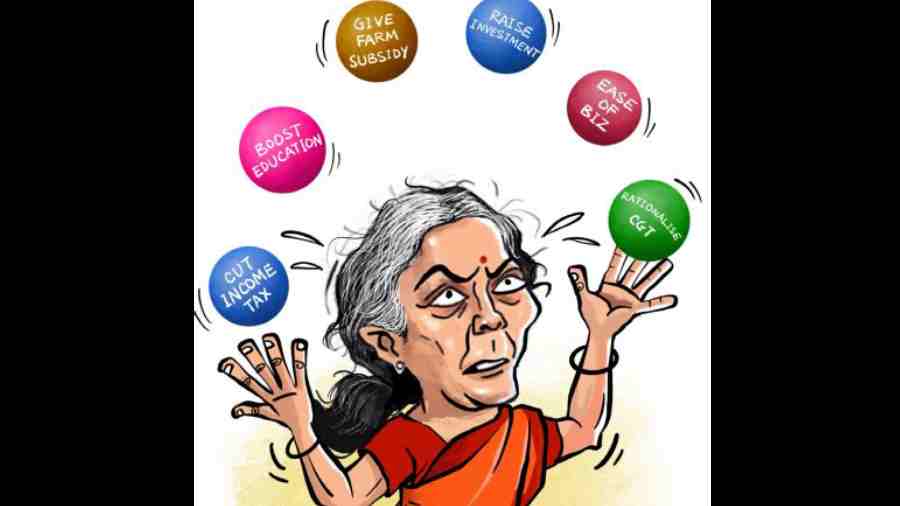The finance minister on February 1, 2023, started her budget speech by referring to the current period as Amrit Kaal and has laid down several measures to boost the Indian economy by focusing on infrastructure, healthcare, agriculture and start-ups, thus mentioning that India’s current year’s economic growth is the highest among all major economies.
MSME sector
MSMEs are growth engines of any economy and facilitating ease of doing business for such organisations has always been at the forefront of the government agenda.
MSMEs having turnover up to Rs 3 crore will now be able to adopt presumptive taxation for income tax, subject to the fulfilment of certain conditions.
The government has also introduced several measures to ensure liquidity in hands of MSMEs, (a) allowance of deduction of amounts payable to MSMEs only once the same are actually paid; (b) refund of upto 95 per cent of performance securities forfeited by govt/govt undertakings because of failure to execute contracts during the Covid period; (c) infusion of Rs 9,000 crore in revamp of credit guarantee scheme (CGTMSE) to facilitate collateral-free credit and reduced credit cost.
Focusing on digital enablement and inclusiveness, DigiLocker will be set up for use by MSMEs, for storing and sharing documents online securely, whenever needed, with various authorities, regulators, banks and other business entities. The digital ecosystem for skilling will also be further expanded with the launch of a unified Skill India Digital platform for MSMEs.
Start-ups
A few years ago, the government launched the Startup India initiative to build a strong ecosystem for nurturing innovation and encouraging private investments. These start-ups are now growing into ‘Unicorns’ and playing a significant role in the steady development of the economy. In order to further promote start-ups, the government has proposed to extend (a) the sunset date for eligibility of tax holiday by another year and (b) protection to tax losses of first 10 years from expiry on account of change in shareholding pattern.
The tax incentives given to start-ups shall facilitate the growth of aspiring entrepreneurs in their initial phase of business.
Co-operatives
Emphasising that a national database is being created to map cooperative societies, a few amendments have been proposed to promote the growth of manufacturing cooperative societies and to extend more credit facilities to the farmers at the grassroots level.
The government has introduced a slew of beneficial proposals being, to reduce the tax rates to 15 per cent (for manufacturing activities), allow deductions in respect of the purchase of sugarcanes for earlier years upto the Statutory Minimum Price and increase the threshold for levy of TDS implications on cash withdrawal.
Above changes will ensure the success of such cooperative societies which will lead to ensuring an uninterrupted supply chain and income support to farmers.
Real estate
Curtailing of benefit of capital gains exemption: Exemption from capital gains tax is available upon acquisition of a residential house property by utilising the funds liquidated from the transfer of any other long-term capital asset. The intent of these provisions is to encourage housing for the relatively lower income brackets of society and boost the real estate sector.
Such benefits are also being availed by high-net-worth individuals in a large volume of cases. To curtail the benefits being claimed on a huge amount of capital gains, it is proposed to restrict the exemption under the relevant provisions (namely sections 54 and 54F) to a sum of INR 10 crore.
Restricting claim of double deduction of housing loan interest: The existing provisions allow the deduction of housing loan interest on a year-on-year basis. When a property is sold, capital gains are computed considering the total cost incurred in the acquisition and improvement of such property. On account of inadequate clarity of the provisions, taxpayers include the interest component on home loans while computing the cost of the asset, thereby claiming a double deduction of the same expenditure.
It has been proposed to exclude interest, claimed as a deduction in computing total income in any earlier year, as the cost of acquisition of the property for computing capital gains at the time of transfer or sale of such property.
Digital initiatives
- Digital public infrastructure for agriculture will be built, enabling inclusive, farmer-centric solutions through relevant information services for crop planning and health, improved access to farm inputs, credit, and insurance, help for crop estimation, market intelligence, and support for the growth of agri-tech industry and start-ups
- National Digital Library for children and adolescents will be set up for facilitating the availability of quality books across geographies, languages, genres and levels, and device-agnostic accessibility
- The financial sector regulators will also be encouraged to have a KYC system fully amenable to meet the needs of Digital India
- PAN will be used as the common identifier for all digital systems of specified government agencies, bringing ease of doing business; and it will be facilitated through a legal mandate
- The digital ecosystem for skilling will be further expanded with the launch of a unified Skill India Digital platform
- To promote investments in the electronic equivalent of gold, the conversion of physical gold to electronic gold receipt is proposed to be exempted from capital gains tax.
Analysis by Dinesh Agarwal, tax partner, EY, and Chetan Mehta, tax director, EY. Views expressed are personal














